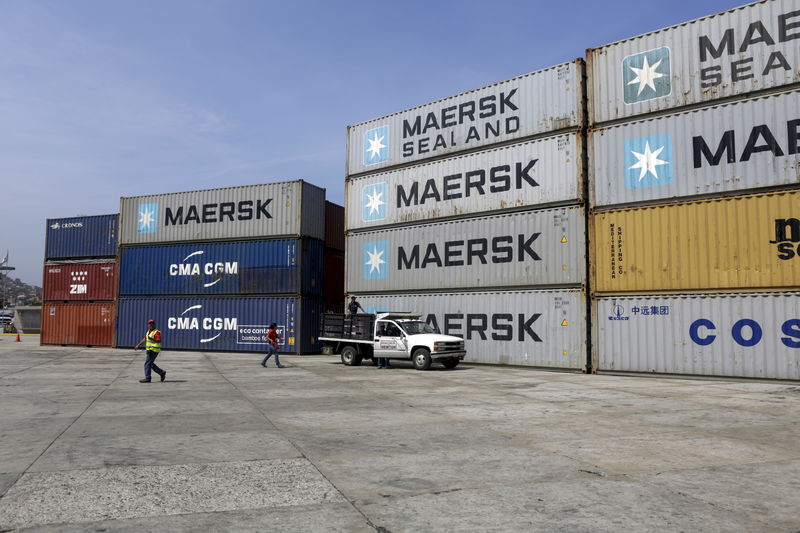Gold prices set for weekly gains on dovish Fed outlook; silver near record high
By Geoffrey Smith
Investing.com -- The world’s largest shipping company called a top to the restocking trend that has been one of the standout features of the latest stage of the pandemic.
Danish shipping giant Moeller-Maersk (OTC:AMKBY), which accounts for over one in four of the containers shipped across the world, said its windfall gains from buoyant global trade are likely to peak in the first quarter and “normalize” thereafter.
Maersk (CSE:MAERSKa) stock responded with its worst intraday fall in weeks, its A-shares losing 5.7% by 6 AM ET (1100 GMT), having bounced weakly off a three-month low.
The news is important because Maersk’s performance has embodied the shift in global consumer spending patterns over the last year, in which people locked down at home have diverted their disposable away from services which are temporarily unavailable to goods, much of which has gone either into home improvement or adaptation.
The global shipping industry has been maxed out by that trend, with the asymmetry of China’s external trade in particular just making things worse, forcing many ships to spend half of their time empty on return legs to China.
That has allowed shippers such as Maersk the chance to push prices up sharply: the company estimates it contributed $1.5 billion to earnings before interest and taxes in 2020.
The “normalization” that Maersk expects isn’t likely to be abrupt either. Profits aren’t going to fall off a cliff. The first quarter of this year is still expected to be better than 4Q 2020. Underlying EBITDA is set to rise to between $8.5 billion and $10.5 billion this year, from 8.3 billion last year. Its key Ocean division is still set to grow in line with global demand of between 3% and 5% although, here too, growth will slow in the second half.
The midpoint of the EBITDA range is almost exactly where Maersk’s net debt stood at the end of the year, so there will be minimal pressure on its ability to keep buying back stock.
However, the market has already decided the cyclical high for Maersk is already past. After Wednesday’s losses, the stock is down 20% from its peak three weeks ago, after posting its biggest gains since 2005 last year.
Vaccines and the lifting of lockdowns across the northern hemisphere are likely to ensure that this trend continues: barring fresh disasters, 2021 will be the year that spending on travel, dining out and commuting revive at the expense of fitness bikes, sofas and PC upgrades. Although the unwind is likely to be softened for Maersk by fiscal stimulus that will float all boats, underperformance is likely to be a constant from now.
